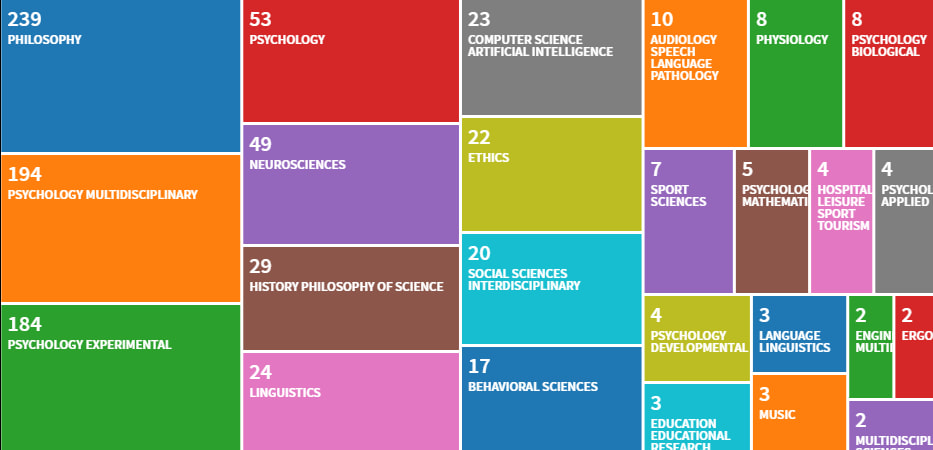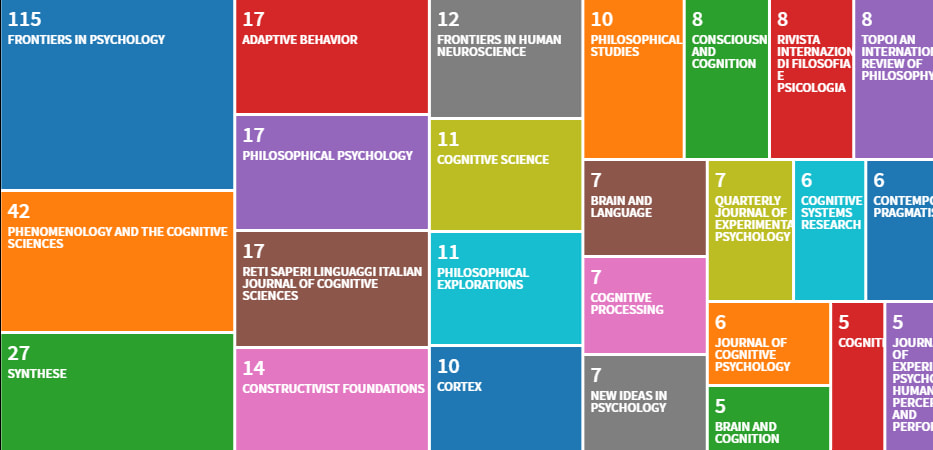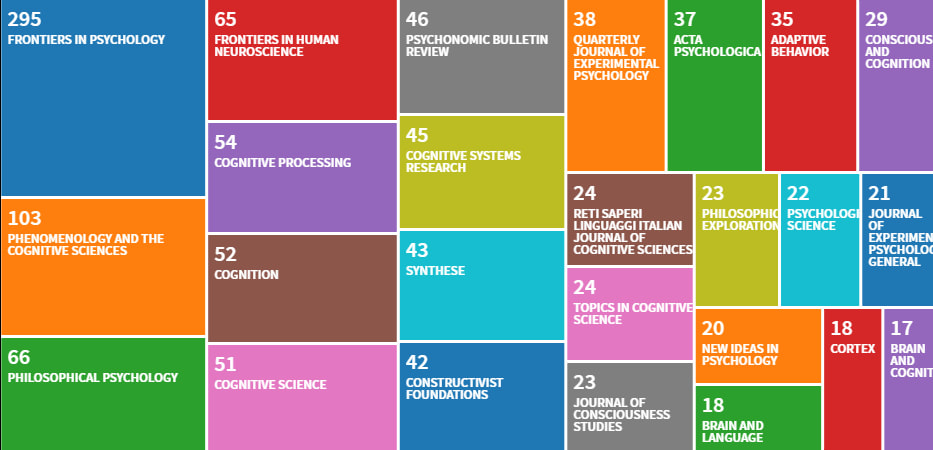|
I told my friend Joe Vukov about using Web of Knowledge to figure out which journals are publishing in which areas. (E.g. which journal has been publishing the greatest volume of work on the epistemology of disagreement or on Stoic ethics.) He said it was a great idea to share with grad students, so I'm providing a more fine-grained account of the steps to discover who's publishing in what topics. If you happen to be reading this a year (or more) after I've written it, then the number of returns you get may be different from mine. So take the numbers here as indicating a snapshot of research volume on 4E cognition at a particular moment in time. The instructions here suppose that you're following along at home. I suppose I could have used screenshots but I have two monitors it's kind of a pain in the tuckus to get all and only what I want, hence the egocentric directions. Does your school have a subscription? I found mine by calling up the library, and they told me to look 'databases' tab on the library webpage. Lo and behold, there it was. Create a login and username for yourself. I prefer to use the advanced search since it has more tools at your disposal but I got started by playing with the basic search function. In a nutshell: you put in your search parameters, and the site finds every citation fitting those parameters since 1965. Not up to speed on your Boolean operators? They have a tutorial. (You find it by going to 'advanced search.' You'll see a few links telling you where to go.) I go a little overboard with the parentheses only because I can never remember what operators take priority and I'm too lazy to look it up every time. I wanted to find out where folks have been publishing on 4E cognition in the last 3 years. So I used the following search term: TS=("extended mind*" OR "extended cognition" OR "enactive mind*" OR "enactive cognition" OR "enactivism" OR "embodied mind*" OR "embodied cognition" OR "embedded mind*" OR "situated mind*" OR "embedded cognition" OR "situated cognition") 'TS' is topic; the asterisks capture any string with at least the part before the asterisks -- so the initial string plus anything else attached to it. E.g. 'mind*' will catch both 'mind' and 'minds'. This returned 3,828 results. If you select, under the left-hand menu at "Web of Science Categories", you'll see that it covers psych and philosophy, but also literature, religion, management, sports science, and a bunch of other things. I only want the psych (the 1st, 2nd, and 5th in the list for me) and phil (3rd in the list) results, so I'll pick those and hit "refine". Now we're down to 2,035 citations. I also only want stuff published in the last 3 years, so I'll select what years I want under "Publication Years" in the left panel. This gets me 624 citation. First, can we appreciate that 624 items have been published on 4E cognition between January 2017 and December 2019 in philosophy and psychology alone? Holy shit. Ok, back to the task: go to "Analyze Results" (towards the top right) and you'll get a treemap of citations by topic. (I changed 'number of results' to 25 because I wanted the as many top results as possible, and 25 is the limit.) Here's what that looks like. What the hell? I refined for 'philosophy' and 'psychology' but 'sports sciences' still made it into the analysis! I can't find anything on it on the website, but I'm assuming that if a citation is tagged as both A and B, then refining for tag A means that tag B comes along too. So tags are excluded as long as they're never conjoined with the filtered-for tags but also if they're specifically excluded (which is another option when refining). That's all fine. It doesn't affect what we're doing here: we want to know which journals are publishing 4E work and that doesn't depend on whether Web of Science's categories are mutually exclusive or how the filters work at this level. It may be important if you want to do other analyses. Now to get journal titles, select "Source Titles" in the left-hand menu, and you'll get the following visualization. This tells me the top three journals publishing the greatest volume of 4E papers are Frontiers, PCS, and Synthese. Also, I had no idea that the Italian Journal of Cognitive Sciences has published more papers on 4E cognition than Cognitive Science. That'll teach me to pay attention to only English-language journals. (In case you're curious, it publishes papers in both English and Italian.) Keep in mind some limitations: 1. It doesn't tell me if the work is critical (or not) 2. There's no information about special issues, which could inflate the numbers 3. The numbers aren't relative to the total volume of work the journal publishes Nonetheless, the visualization gives me a good sense for editors who are less likely to give 4E papers a desk reject because they don't fit with the journal's recent trends. Neato, right? Now, suppose you want to expand your search for journals publishing 4E stuff since the 1960s. One thing to remember is that every time you refine your search, Web of Science counts it as a new search. So if you go to "Search History" you should be able to find your previous searches. I want to see historically who's been the greatest publisher of 4E work, so I select my search that refined for category but not year. Here's what that looks like: I think there are some neat observations here. Frontiers and PCS are still the top 2. Phil Psych moves from 5th to 3rd. Synthese goes from 3rd to 10th -- suggesting they got into the 4E game more recently. Same thing for Adaptive Behavior. And Analysis doesn't make the top 25, despite publishing Clark and Chalmer's 1998 paper "The Extended Mind"! One thing to keep in mind is that some journals in the list are generalist ones (Synthese, Cognitive Science) and others are specialists (Philosophical Psychology, PCS) so you'd expect specialists to have more 4E papers than generalist ones. Another thing to keep in mind here is when the journal was founded. Older journals have a leg up on newer ones in several ways, but Frontiers is pretty darned new (definitely newer than Synthese) soooo..... But enough of my weird interest in the shifting sands that is the culture of professional philosophy. We've got here an easy way to learn who's publishing what. Any questions or comments, please feel free to write!
0 Comments
Leave a Reply. |
About me
I do mind and epistemology and have an irrational interest in data analysis and agent-based modeling. Old
|




 RSS Feed
RSS Feed
